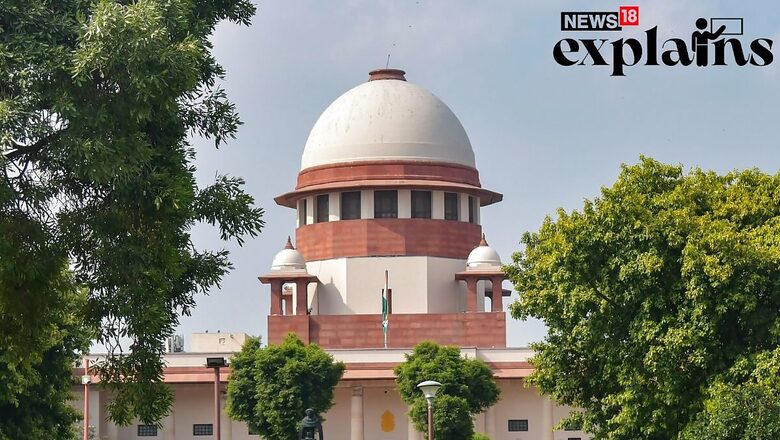
views
The Supreme Court on Monday upheld the Union Government’s decision to abrogate Article 370, which bestowed special status on the erstwhile state of Jammu and Kashmir, and directed that statehood to the union territory of Jammu and Kashmir be restored at the earliest.
Chief Justice of India DY Chandrachud, while hearing petitions challenging the government’s move to abrogate the special status of Jammu and Kashmir, said Article 370 is a temporary provision and said J&K held no sovereignty after its accession to India.
The constitution bench of the Supreme Court made 3 separate judgments: first led by DY Chandrachud, Justice Gavai and Surya Kant; second by Justice Sanjay Kishan Kaul and third led by Justice Sanjiv Khanna- made a series of observations regarding Article 370 and Jammu and Kashmir.
News18 takes a look at some of the legal jargons used in the Article 370 verdict and what the terms signify:
- Article 367: The majority judgement of the Supreme Court, led by the Chief Justice, mentioned Article 367. In 2019, the Presidential Ordinance added a new clause to Article 367, which dealt with an interpretation of the Constitution. The new clause, in relation to the state of J&K, made a new addition stating that the term ‘Constituent Assembly’ in Article 370 should be construed as Legislative Assembly.The SC bench in its judgement said that the Constitution (Application to Jammu and Kashmir) Order, 2019 272 made changes to Article 370 first, which effectively changed Article 370. “We have therefore held that the amendments made to Article 370 by taking recourse to Article 367 as ultra vires,” the order said. The court, however, added that permitting such amendments by such a “surreptitious method would be disastrous.”
- Ultra Vires: The Chief Justice held that the amendments made to Article 370 by taking recourse to Article 367 were ultra vires. Ultra vires acts are any acts that lie beyond the authority of a government, agency or corporation to perform. In simple terms, it means that an authority can exercise only so much power as is conferred on it by law.
- Mala fide: An action is ‘mala fide’ if it is contrary to the purpose for which it is authorised to be exercised. ‘Mala fide’ means in bad faith and a mala fide action is one that is performed with dishonest intent.
- CO 272: The CO 272 or the Constitution (Application to Jammu and Kashmir) Order, 2019, issued on August 5, 2019, amended Article 367 of the Indian Constitution. The amendment changed the reference from the “Constituent Assembly” to the “Legislative Assembly” in Article 370(3), which played a pivotal role in the subsequent steps leading to the abrogation of Article 370.“In proviso to clause (3) of article 370 of this Constitution, the expression “Constituent Assembly of the State referred to in clause (2)” shall read “Legislative Assembly of the State,” the order read.
- Article 370(1)(d): Article 370(1)(d) includes the exceptions and modifications in the application of the Indian Constitution to Jammu and Kashmir. It states that the constitutional provisions could be applied to the state from time to time, as modified by the President through a Presidential Order, and upon the concurrence of the state government.“The other provisions of this Constitution shall apply in relation to that State subject to such exceptions and modifications as the President may by order specify: Provided that no such order which relates to the matters specified in the Instrument of Accession of the State referred to in paragraph (i) of sub-clause (b) shall be issued except in consultation with the Government of the State,” the order stated.
- Abrogation of Article 370: In a major decision on August 5, 2019, the Union Government decided to repeal the provisions under Article 370 of the Constitution of India, which granted a special status to the state of Jammu and Kashmir. The government issued a Presidential Ordinance that stripped Jammu and Kashmir of special status under Article 370 and repealed Article 35A.
- Upholds: The Supreme Court upheld the centre’s decision to abrogate Article 370 and refused to go into validity of the Presidential rule imposed in Jammu and Kashmir. The term “uphold” means to defend, keep or agree to a principle or an order made a government body.




















Comments
0 comment